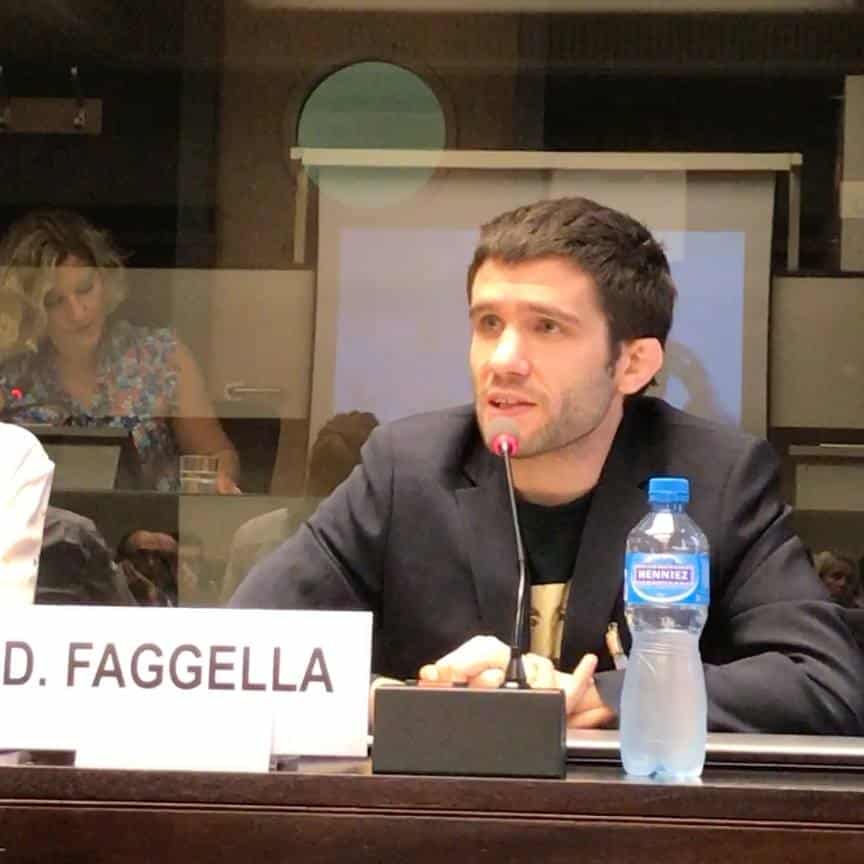Event Title: The Conference on Disarmament at the United Nations in Geneva
Event Host: the United Nations
Date: August 16, 2018
Team Member: Daniel Faggella, Emerj CEO and Founder
What Happened
Wendell Wallach, one of the foremost thinkers on the intersection of AI and ethics and governance, put me in touch with Anja Kasperson, Director of the Office for Disarmament Affairs at the United Nations in Geneva. Anja reached out because they wanted an industry perspective over in Geneva. They needed somebody who could translate the cutting edge of AI in terms of startup developments for an audience of government employees and diplomats who weren’t familiar with AI. In other words, they needed to know what was possible today with AI, something we focus on heavily here at Emerj.

And so I was invited to the Palace of Nations to be a panelist at the Conference on Disarmament at the United Nations in Geneva. There were a number of panelists at the session, including high-level technologists from organizations like the Red Cross and high-level personnel from the United Nations. There were folks who were experts on autonomous weapon systems and a variety of leaders at non-profit initiatives that focused on disarmament.
There were these long strips of tables and seats with delegates from countries all over the world: the US, Argentina, India, Pakistan, Russia, Ukraine. Behind the panelists on the other side of the tinted glass, translators were working hard to translate everything the panelists said to all different languages in real time, feeding those translations to the delegates’ earpieces.
I answered questions about what’s possible with AI now and the difficulty of retaining artificial intelligence talent, as well as specific questions about disarmament and the applications of AI in the military, such as machine vision. It was neat to be able to field questions from people who are in much more of a diplomatic role than an executive one.
What We Learned
- Discussion about AI is new in the government sector, at least at the UN. It was clear that Anja is unique in putting an emphasis on bringing emerging technology to the conversation of disarmament, which is most often about nuclear and chemical weapons. As a result, the panelists had to discuss rather basic concepts about AI for these delegates. Policymakers are much further behind than executives in big sectors like banking and pharma when it comes to a baseline understanding of what artificial intelligence is and what it can do. This is likely because the lives of policymakers weren’t directly affected as soon as machine learning became a hot topic the way that those of business leaders were. Business leaders could look at their competitors and see how machine learning was or wasn’t affecting their bottom line, but that kind of mentality doesn’t necessarily need to be there all the time in government. It certainly is, as I discussed with high-ranking military personnel at National Defense University, but it’s likely that not every government official needs to be concerned with the applications of AI in the near-term.
- There seems to be a good deal of both curiosity and skepticism about AI amongst policymakers. A few years ago, there was curiosity and skepticism amongst business leaders, but there was also a ravenous optimism for it. This difference might be because the policymakers haven’t really been affected by AI yet, whereas the business leaders in banking or retail were already aware of the value that their competitors were getting from machine learning.



















